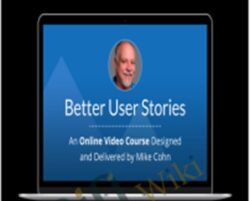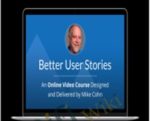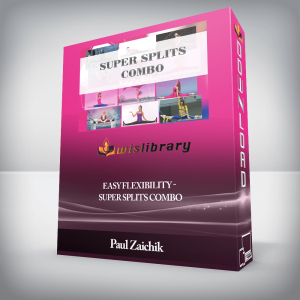Better User StoriesDiscover and Deliver What Customers Really WantEngage your team Increase velocity Split ANY epicAnd deliver more value… fasterBetter User Stories is an advanced, in-depth video course suitable for beginners and experienced agile practitioners. Through the 9 modules and course materials you can transform the way your team (or teams) write user stories.What can you do with Better User Stories?Develop skills that are desperately needed todayThe adoption of user stories is rapidly increasing, but companies struggle to get them right. Savvy agilists are seizing this opportunity to specialize in user stories. When you’re the person who can make user stories work for any team, and any organization, you’re a vital (and valuable) asset. Stay focused on the end-user to deliver the BEST solutionToo often, teams focus on the ‘how’ instead of the ‘why’. They write user stories with vague, vanilla value statements and skip straight to the tasks they think need to be done. Better User Stories shows you how to coach others (persuasively) to stay focused on the end-user value in each user story. This makes your team much more likely to deliver something stakeholders will love. Eliminate endless rework with a step-by-step writing systemDoes your Product Owner write user stories only for the development team to ignore them? Is precious time wasted on revisions because of missing features? Better User Stories gives you a systematic approach to writing user stories that combine the stakeholder vision AND the technical perspective needed to deliver it. Finally you can answer all questions about who should write them, how you should write them, how often and when, and most importantly – how to get everyone invested in writing user stories (without standing on a soap box).Ramp up velocity with a different approach to splitting…Can you really split stories that can be completed in an iteration, but aren’t so small that they leave stakeholders underwhelmed? Yes… but it requires an approach that is new to many agile teams. This course shows you exactly how to split any story without hours of discussion. You’ll also know how many stories you should have per person, how to tell if your stories are too small (and when you should stop splitting), and whether you might need a longer iteration to complete them. Finally answer the question of “How much detail?!”Adding detail to user stories creates a multitude of problems: how do you stop vague one-line descriptions that stall progress? Should you spend hours pinning down scope so the team isn’t blamed if something gets missed? With this course you’ll learn how to write stories that are detailed enough to start quickly, but broad enough so the team can unleash their creativity when delivering the solution.What’s included when you join?Instant access to all 9 ModulesWorkbooks, quizzes, and lesson transcripts and MP3 files60+ professionally recorded videos (English captions available)10 Category B SEUs and 10 Category B PDUsOver 6 hours of content30 day money-back guaranteePlus lifetime access to all materials and all lessons designed and delivered by Mike CohnNo time to take a course? We’ve made it easy for busy schedules…It’s hard to find the time to invest in new training so we’ve made it easy for you to benefit from the course without putting everything else on hold: Lifetime access – Order today, learn when you’re ready3-10 minute lessons – Sharpen your skills on a coffee breakEasy access – From your computer, phone, or tabletYou can also…Who is it for?This course has been designed for:AGILE COACHESContribute your skills and provide invaluable input when writing better user stories.SCRUM MASTERSHelp your team identify and write the best user stories.PRODUCT OWNERSBuild, prioritize and maintain a product backlog of strong user stories.BUSINESS ANALYSTSHelp identify and convey what users and stakeholders really need from a product.AGILE TEAM MEMBERSContribute your skills and provide valuable input when writing better user stories.The 9 modules of Better User StoriesModule 1: What Stories AreThis module walks you through why user stories are so important, and looks at some of the key functions that are too often overlooked. This is the perfect refresher of the important foundations of user stories, and makes a great communication tool for explaining their importance to team members and stakeholders.Module 2: Users, User Roles and PersonasMany complex projects need to service the needs of multiple users. The sheer amount of variables within and across different users makes this a challenge. This module shows you how to clearly define stories for different user groups without getting bogged down in too much detail, or missing key functionality.Module 3: Story-Mapping and Story-Writing WorkshopsIf you don’t know how to run a successful story-writing workshop you can end up with an expensive, time-wasting exercise that doesn’t tell you how to deliver what a customer really wants. This module guides you step-by-step in how to run a great workshop so you can highlight gaps, prioritize tasks and choose only the stories that must be present to achieve the minimum viable product.Module 4: Adding Detail with Conditions of Satisfaction of Acceptance CriteriaThere is a systematic way of making sure that you have enough detail, at the right time without stifling creativity. In this module you’ll solve the confusion around Epics and Themes. You’ll learn practical approached for adding details including knowing when to stop and how to handle a team that wants too much detail. You’ll also be able to stop stories from turning into non-agile stage-gate placeholders.Module 5: INVEST in Good StoriesThe INVEST acronym: Independent, Negotiable, Valuable, Estimatable, Sized Appropriately and Testable is an invaluable tool for writing a strong user story. The challenge is knowing how to practically apply all of the individual elements. This module breaks down each one so that the process is clear, increasing the chance that teams adopt the method, and write stories that meet all the criteria.Module 6: Splitting StoriesThis entire module is devoted to the most vexing and time-consuming issues surrounding splitting stories. One of the biggest problems is making sense of the myriad of advice on this subject. You don’t need 20 different ways to split a story, you need a focused, proven and practical method. The SPIDR approach looks at the most critical and valuable channels for splitting stories. This means you and your team can bring stories into an iteration that can be completed independently, and show meaningful progress to stakeholders.Module 7: Overcoming Common ProblemsThis troubleshooting module covers the most common problems I’ve helped teams overcome. From spending too much time splitting stories, adding too much detail, to managing the need for a requirements document. This module helps you eliminate issues as they arise, making it easier to transition teams and make them more comfortable in adopting user stories.Module 8: Things That Are Not User StoriesUser stories seem simple. But because they are not lengthy documents with an endless checklist of requirements, teams run the risk of misinterpreting the rules. The result can be creating user stories that aren’t actually user stories. They may be feature lists, or job stories, bugs or non-functional requirements. These subjects are important to a project, but you need to handle them in the correct way to avoid problems further down the lineModule 9: Wrap Up and ReviewIn this final module, we’ll review the course and look at how you can apply what you’ve learned going forward.Get Better User Stories – Mike Cohn, Only Price 63$Tag: Better User Stories – Mike Cohn Review. Better User Stories – Mike Cohn download. Better User Stories – Mike Cohn discount.
Better User Stories – Mike Cohn
₹9,794.00







